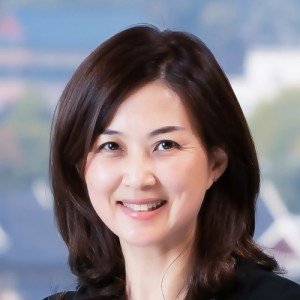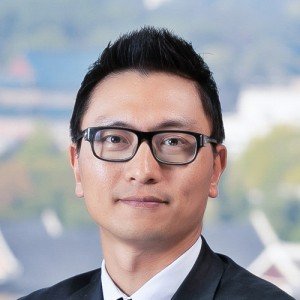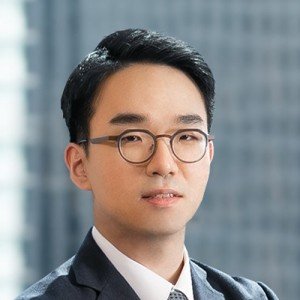South Korea amends major IP laws for stronger enforcement
30 November 2020
 South Korea’s IP laws have been made more friendly for right holders, thanks to a series of amendments made in 2019 and 2020. Mikyung (MK) Choe, Seung-Chan Eom and Seung Jun Ji explain.
South Korea’s IP laws have been made more friendly for right holders, thanks to a series of amendments made in 2019 and 2020. Mikyung (MK) Choe, Seung-Chan Eom and Seung Jun Ji explain.
A number of South Korea’s main intellectual property laws were amended in 2019 and 2020 to become more friendly to right holders. Key amendments are discussed below.
Damages now more broadly available for trademark and design infringement as well as patent infringement and trade secret misappropriation in Korea
Recently, the major South Korean intellectual property statutes were amended to be more right holder-friendly with respect to the calculation of damages for infringement, including a new provision for treble damages for intentional or willful infringement or misappropriation. The Patent Act (PA) and the Unfair Competition Prevention and Trade Secret Protection Act (Trade Secret Act) were amended on July 9, 2019, to reflect these changes. As of October 20, 2020, the Korean Trademark Act (TMA) and the Korean Design Protection Act (DPA) have also been amended.
In South Korea, to obtain an award of damages, a patent, utility model, trade secret, design or trademark owner must prove the amount of damages caused by the infringement with a relatively high degree of specificity. Showing the amount of such damages with sufficient precision is usually difficult. There are several statutory methods for calculating damages. One is to calculate the amount of actual damages incurred by the right holder due to the infringement/misappropriation. However, due to the limited discovery available in Korea, it is often difficult to prove the amount of actual damages in a given case.
The above-mentioned statutes provide for a presumption that the following methods are reasonable measures for calculation of damages, and the recent amendments were designed to solve certain practical difficulties in the calculation of damages. Before the amendments, rights holders could claim damages compensation from an infringer based on (i) the infringer’s profits gained from the infringement, (ii) the right holder’s lost profits due to the infringement, or (iii) royalties “ordinarily expected” from an arm’s length license. However, as with actual damages, it has generally been difficult to ascertain infringers’ profits as most infringers are not cooperative regarding providing the relevant financial data. Moreover, when it comes to claiming lost profits, since such profits are limited to the right holder’s own sales and production capacity, many infringers end up paying a relatively minimal amount of damages despite committing significant infringing acts over many years. Accordingly, there have been discussions about the need for stronger punitive damages as a protective measure not only for right holders but also for consumers who may be victimized by infringing goods.
Reasonable royalty. The “ordinarily expected royalties” damages calculation method has also been criticized as being out of touch with actual market conditions, where there often is no existing royalty standard, and thus failing to result in sufficient damages awards. Therefore, the amendments to the TMA, DPA, PA and Trade Secret Act have changed the “ordinarily expected” royalty standard to a “reasonable” royalty standard, to help properly protect right holders by broadening the royalty calculation to include any reasonable factors under the totality of the circumstances, rather than focusing on “expected” royalties. The amended TMA and DPA apply to infringing acts committed after the effective date of October 20, 2020. The amended PA and Trade Secret Act have applied to infringing acts committed after this effective date of July 9, 2019.
Punitive damages. The PA and the Trade Secret Act were previously amended on July 9, 2019, to introduce treble damages for cases of willful or intentional patent infringement or trade secret misappropriation. Such treble damages have now been added to the TMA and DPA as well. The amended TMA and DPA apply to infringing acts committed after the effective date of October 20, 2020. The amendments allow courts to order willful or intentional trademark or design infringers to pay up to three times the assessed damages amount. This amendment reflects a recognition by the Korean legal system that increased penalties are needed to effectively discourage acts of infringement and to better protect IP rights holders in South Korea. Damages amounts for intentional or willful patent infringement/trade secret misappropriation are expected to increase significantly in size.
When calculating the amount of such punitive damages, courts are instructed to consider the following factors: (i) whether the infringer has a dominant position in the market; (ii) whether the infringer knew the act of infringement would cause harm to the right holder, or intended to cause such harm; (iii) the significance of any such damages incurred to the right holder; (iv) the economic benefits to the infringer from the infringement; (v) how frequently and how long the infringing activity was committed; (vi) the criminal penalty for the infringing activity; (vii) the infringer’s financial status; and (viii) what efforts the infringer has made to reduce the harm to the right holder. For willful trademark infringement, the same factors apply, with the exception of the first factor (i) which is replaced by consideration of the significance of any damages to the distinctiveness or reputation of the infringed trademark caused by the infringing activity.
Statutory damages. The TMA provides for statutory damages compensation, for which the maximum amount has been increased by the recent amendment. Courts hearing trademark infringement cases previously were able to order statutory damages compensation up to W50 million (US$46,000) for an infringer who intentionally or negligently infringed a trademark right without calculating actual damages. After the amendments, this statutory damages compensation limit has been substantially increased to W300 million (US$276,000) for intentional infringement, and W100 million (US$92,000) for negligent infringement. This amendment to the TMA applies to trademark infringing acts committed after the effective date of October 20, 2020.
Lost Profits. As noted above, the “lost profits” damages calculation method is currently subject to the limitation that damages will not be awarded beyond the right holder’s own production capacity. As a result, the damages available to the patentee under this calculation method have tended to be quite low, even where the infringer is a far larger company with much greater capability to produce and market the infringing products or services. This situation has been criticized as insufficient to deter patent infringement, particularly infringement by large companies.
On May 20, 2020, an amendment to the PA was passed to ameliorate this limitation, by adding a provision that if the “sales amount of an infringer” exceeds the right holder’s own production capacity, the patentee is now entitled to receive reasonably expected royalties for such excess sales (Article 128, Paragraph 2). By increasing the potential liability for damages through express provisions in the Patent Act, the amendment is expected to strengthen patent rights in Korea and to help curb abuses by large infringers. This amendment applies to patent actions filed on or after the effective date of December 10, 2020, and applies to utility model rights as well.
Equivalent amendments to the TMA, the DPA and the Trade Secret Act were passed by the National Assembly on December 1, 2020, and will take effect six months after promulgation.
Recent amendment to Patent Act will facilitate more criminal investigations of patent infringement
The Patent Act provides for criminal remedies for patent infringement as well as civil remedies. A willful patent infringer can be punished with imprisonment of up to seven (7) years, or a fine of up to W100 million (US$92,000). However, under the previous Patent Act, a criminal investigation and indictment for patent infringement could only be initiated if a criminal complaint was filed by the right holder with the police or prosecutor’s office, who would then conduct a criminal investigation pursuant to the complaint.
In recent years the Korean Intellectual Property Office (KIPO) has expanded the role of the Special Investigation Police (SIP) within KIPO (which was originally established to investigate trademark infringement and counterfeiting matters) to include investigations of patent infringement, to improve enforcement of patent rights. While the SIP also has power to conduct criminal investigations of infringement, it is also limited by the requirement that a complaint be filed in order to initiate criminal patent proceedings. This has been a hurdle to the SIP’s efforts to effectively investigate patent infringement, even if it often becomes aware of such infringement in the course of its duties or when pursuing other cases.
The recent amendment to the Patent Act, which became effective on October 20, 2020, revised Article 225, paragraph (2), which previously provided that “[n]o person shall be prosecuted for committing a crime under paragraph (1) without a complaint filed by the injured party.” The article now reads “…under paragraph (1) against the explicit intent of the injured party.” This change to remove the requirement of a formal complaint was intended to allow the SIP to more actively pursue criminal investigations of patent infringement it may encounter in any context. The amendment applies to acts of infringement committed after the effective date of October 20, 2020.





 (002)-medium.jpg)




